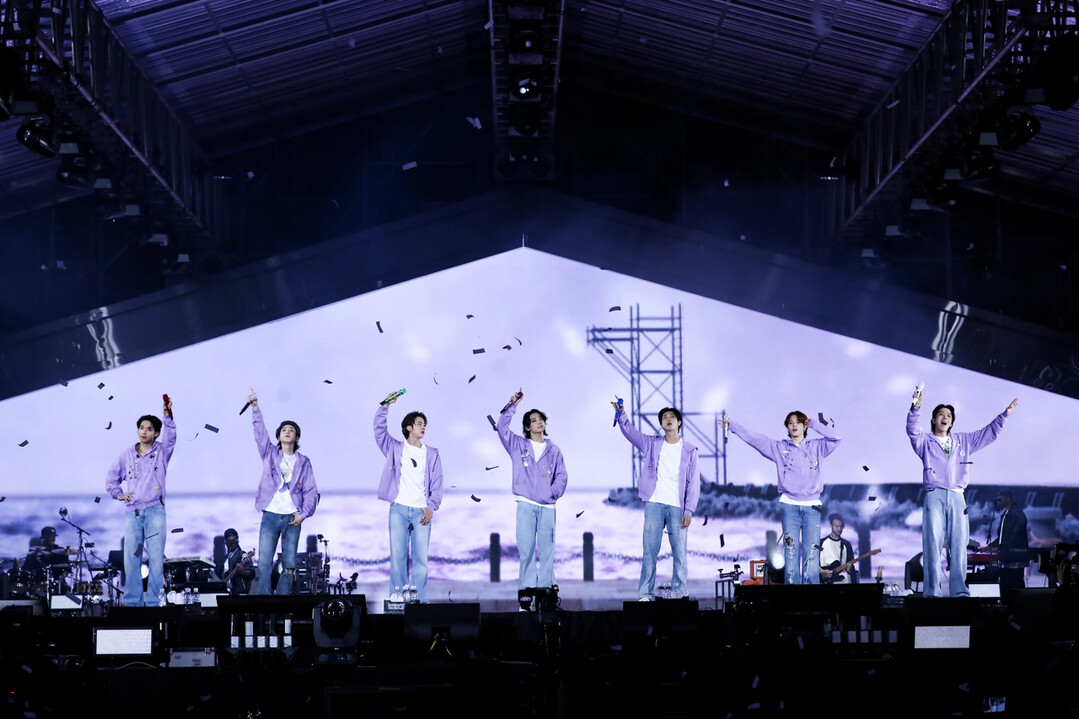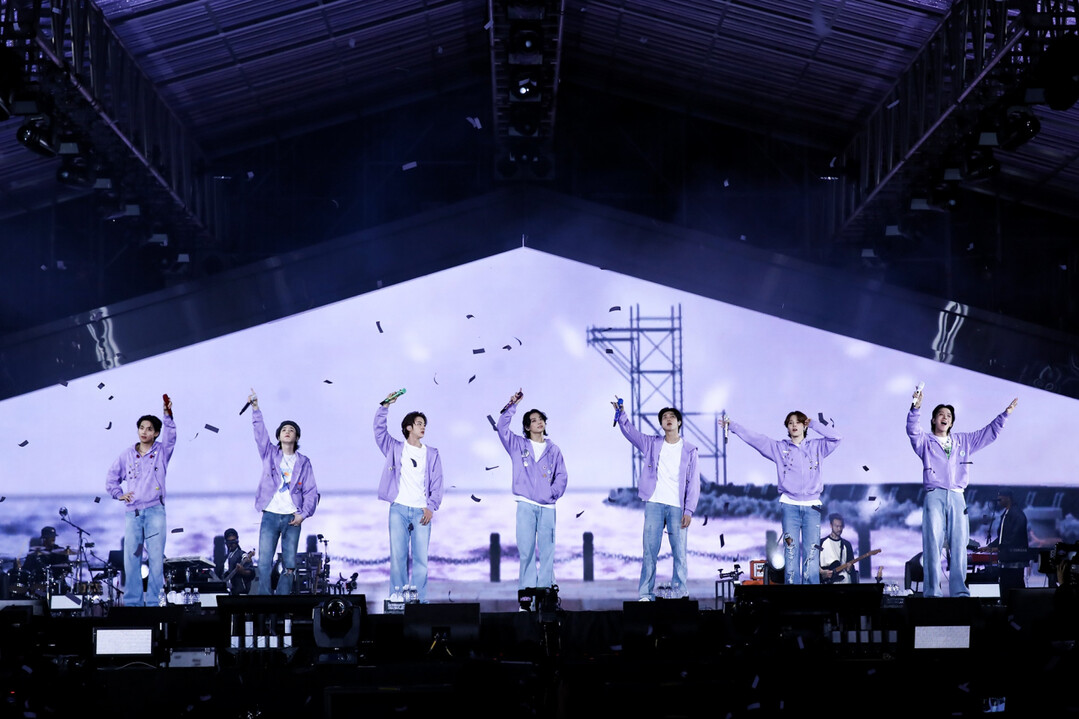Courtesy of Big Hit Music
In the midst of K-pop's evolution, experts emphasize the need for both individuality and collectivity among K-pop stars to sustain South Korea's global cultural influence, known as Hallyu.
According to a recent report by the Foreign Ministry and the Korea Foundation, 68 percent of Hallyu exchange is attributed to K-pop. This cultural phenomenon has led to the formation of over 1,748 "Hallyu communities" worldwide, boasting a collective membership of over 250 million individuals.
Culture critic Kim Heon-sik underscores the importance of versatility for K-pop stars, stating that their ability to navigate this transition will significantly impact the longevity and reach of Hallyu. Kim highlights the need for both individual pursuits and group cohesion among K-pop idols to maintain fan engagement and attract new followers.
 |
| ▲ BTS performs at its “Yet To Come” concert held in Busan / Courtesy of Big Hit Music |
The recent decision by members of the girl group Blackpink to renew their collective contract with YG Entertainment while also pursuing individual endeavors exemplifies this shift. By embracing this new business model, K-pop idols aim to prolong their careers and sustain the momentum of Hallyu.
While Culture Minister Yu In-chon has advocated for cultural initiatives commensurate with South Korea's economic stature, critics like Kim Sung-soo caution against government interference. They argue that politicizing Hallyu efforts could undermine its authenticity and effectiveness on the global stage.
Instead, experts suggest that the government focus on supporting existing cultural infrastructure, such as Korean Cultural Centers overseas, to facilitate the continued expansion of Hallyu without compromising its integrity.
Sayart
Blue YIM, yimyoungseo1010@naver.com
Experts Weigh In on the Future of Hallyu and the Role of K-Pop in South Korea's Cultural Diplomacy
Courtesy of Big Hit Music
In the midst of K-pop's evolution, experts emphasize the need for both individuality and collectivity among K-pop stars to sustain South Korea's global cultural influence, known as Hallyu.
According to a recent report by the Foreign Ministry and the Korea Foundation, 68 percent of Hallyu exchange is attributed to K-pop. This cultural phenomenon has led to the formation of over 1,748 "Hallyu communities" worldwide, boasting a collective membership of over 250 million individuals.
Culture critic Kim Heon-sik underscores the importance of versatility for K-pop stars, stating that their ability to navigate this transition will significantly impact the longevity and reach of Hallyu. Kim highlights the need for both individual pursuits and group cohesion among K-pop idols to maintain fan engagement and attract new followers.
 |
| ▲ BTS performs at its “Yet To Come” concert held in Busan / Courtesy of Big Hit Music |
The recent decision by members of the girl group Blackpink to renew their collective contract with YG Entertainment while also pursuing individual endeavors exemplifies this shift. By embracing this new business model, K-pop idols aim to prolong their careers and sustain the momentum of Hallyu.
While Culture Minister Yu In-chon has advocated for cultural initiatives commensurate with South Korea's economic stature, critics like Kim Sung-soo caution against government interference. They argue that politicizing Hallyu efforts could undermine its authenticity and effectiveness on the global stage.
Instead, experts suggest that the government focus on supporting existing cultural infrastructure, such as Korean Cultural Centers overseas, to facilitate the continued expansion of Hallyu without compromising its integrity.
Sayart
Blue YIM, yimyoungseo1010@naver.com
Related articles
- Debut Song by Illit Claims Top Spots on Billboard and Spotify Global Charts
- Tomorrow X Together's EP "Minisode 3: Tomorrow" Achieves No. 1 on Oricon Weekly Album Ranking
- Key and Minho of SHINee Renew Contracts with SM Entertainment
- BTS's "On" Performance Video Surpasses 600 Million Views on YouTube
















